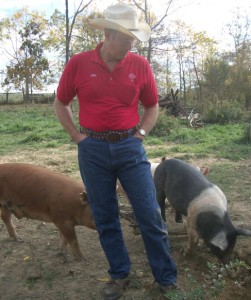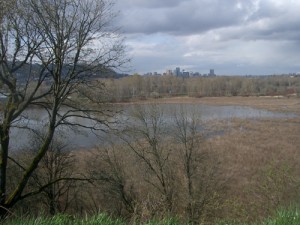
A Radio Documentary written, narrated and produced by Barbara Bernstein
Originally Broadcast in 2010
International negotiations to reduce carbon emissions have so far yielded few tangible results. But there are many effective initiatives we can take to reduce global greenhouse emissions that don’t require international treaties. HEAVY WEATHER, a radio documentary by Barbara Bernstein explores the connections between increasing extreme weather and our changing climate and landscapes. It presents solutions that are community driven, based on decisions we make to change the ways we live and travel. Changes that actually can improve our quality of life.
For a hundred years people in the Pacific Northwest—and much of the world— have transformed the landscape to suit their needs. At the same time we’ve pumped enough greenhouse gasses into the atmosphere to transform the climate, forcing us now to rethink the shape and placement of our built environments. Now the burden of past decisions rests on our shoulders. Heavy Weather looks at what kinds of choices we can make to lighten that burden for future generations.
HEAVY WEATHER was produced with funding from the Regional Arts and Culture Council, Oregon Humanities (an affiliate of the National Endowment for the Humanities) and the Ralph L. Smith Foundation.
HEAVY WEATHER is available on CD for $12.
Order from: Feather & Fin Productions, P.O. Box 82777, Portland, Oregon 97282.
For more information contact the Media Project.
Joel Salatin owns Polyface Farm in the Shenandoah Valley of Southwestern Virginia, where he pioneers many sustainable farming innovations, raising livestock in ways that approximate nature’s templates for how animals behave in the wild. He also believes that food should be produced and eaten locally.
Natural areas, like the 160-acre Oaks Bottom Wildlife Refuge in the Sellwood District of SE Portland, are the best stormwater receptacles a city can have. Portland is fortunate to have preserved and protected a significant amount wetlands and forests. There are no engineered solutions that can quite match nature.



